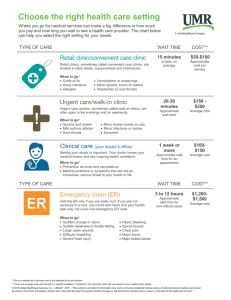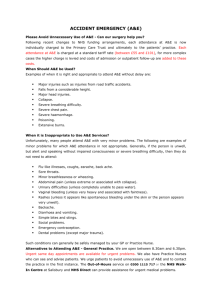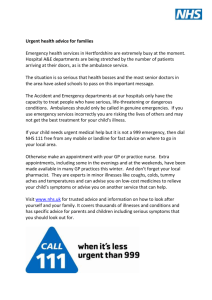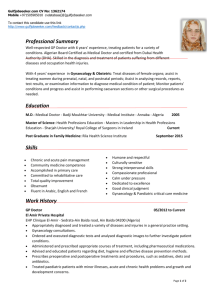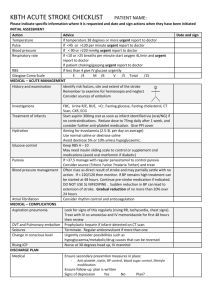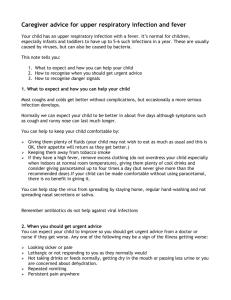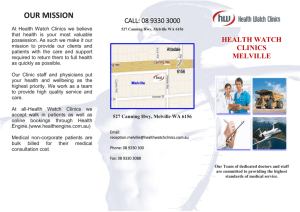Word Version
advertisement
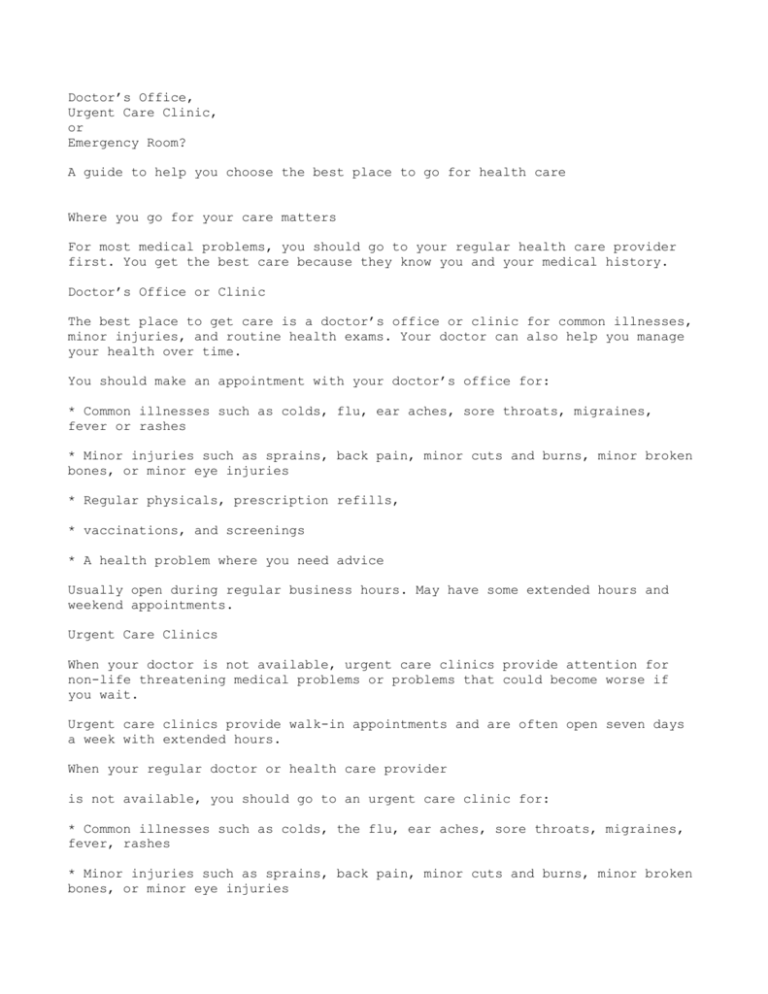
Doctor’s Office, Urgent Care Clinic, or Emergency Room? A guide to help you choose the best place to go for health care Where you go for your care matters For most medical problems, you should go to your regular health care provider first. You get the best care because they know you and your medical history. Doctor’s Office or Clinic The best place to get care is a doctor’s office or clinic for common illnesses, minor injuries, and routine health exams. Your doctor can also help you manage your health over time. You should make an appointment with your doctor’s office for: * Common illnesses such as colds, flu, ear aches, sore throats, migraines, fever or rashes * Minor injuries such as sprains, back pain, minor cuts and burns, minor broken bones, or minor eye injuries * Regular physicals, prescription refills, * vaccinations, and screenings * A health problem where you need advice Usually open during regular business hours. May have some extended hours and weekend appointments. Urgent Care Clinics When your doctor is not available, urgent care clinics provide attention for non-life threatening medical problems or problems that could become worse if you wait. Urgent care clinics provide walk-in appointments and are often open seven days a week with extended hours. When your regular doctor or health care provider is not available, you should go to an urgent care clinic for: * Common illnesses such as colds, the flu, ear aches, sore throats, migraines, fever, rashes * Minor injuries such as sprains, back pain, minor cuts and burns, minor broken bones, or minor eye injuries Usually open extended hours into the evening and on weekends. Some urgent care clinics are open 24 hours a day, seven days a week. Hospital Emergency Rooms You should use a hospital emergency room for very serious or life threatening problems. Hospital emergency rooms are not the place to go for common illnesses or minor injuries. If you are experiencing any of the following symptoms, don’t wait! Call 911 or get to your nearest hospital emergency room. * Chest pain * Severe abdominal pain * Coughing or vomiting blood * Severe burns * Deep cuts or bleeding that won’t stop * Sudden blurred vision * Difficulty breathing or shortness of breath * Sudden dizziness, weakness, or loss of * coordination or balance * Numbness in the face, arm, or leg * Sudden, severe headache (not a migraine) * Seizures * High fevers * Any other condition you believe is life threatening Open 24 hours a day, 7 days a week, 365 days a year. No matter where you go for care, be sure to bring a list of the current medications you are taking. Where to go for care? When illness, accidents, and injuries happen, where should you go for care? If you’re unsure where to go for help, call your doctor or a health help line. After hours help line numbers During regular office hours, call your doctor’s office. Many insurance companies and hospitals have a 24/7 nurse help line to help you decide where to go for care after hours. For those with the following: Aetna (800) 556-1555 Amerigroup (866) 864-2544 Community Health Plans of Washington (Basic Health, Healthy Options/CHIP, Medical Care Services, Washington Health Program, Medicare Advantage) (866) 418-1002 (nurse advice line) (866) 418-1006 (TTY for speech and hearing impaired) Coordinated Care (877) 644-4613 Group Health Cooperative (800) 297-6877 Molina (Basic Health, Healthy Options, Medicaid) (888) 275-8750 (English) (866) 648-3537 (Spanish) Premera Blue Cross (877) 728-9020 UnitedHealthcare Community Plan (877) 543-3409 Those with other insurance carriers should check their insurance cards for information.
